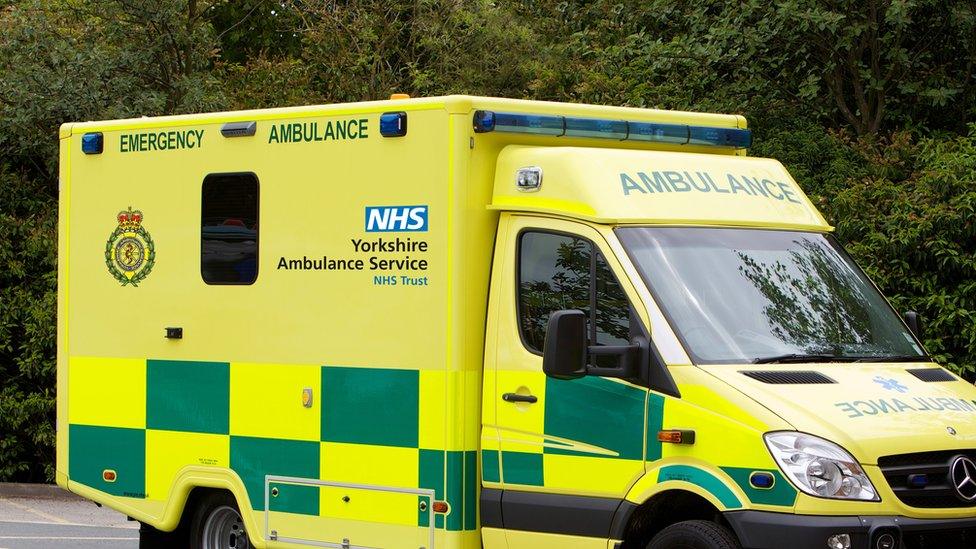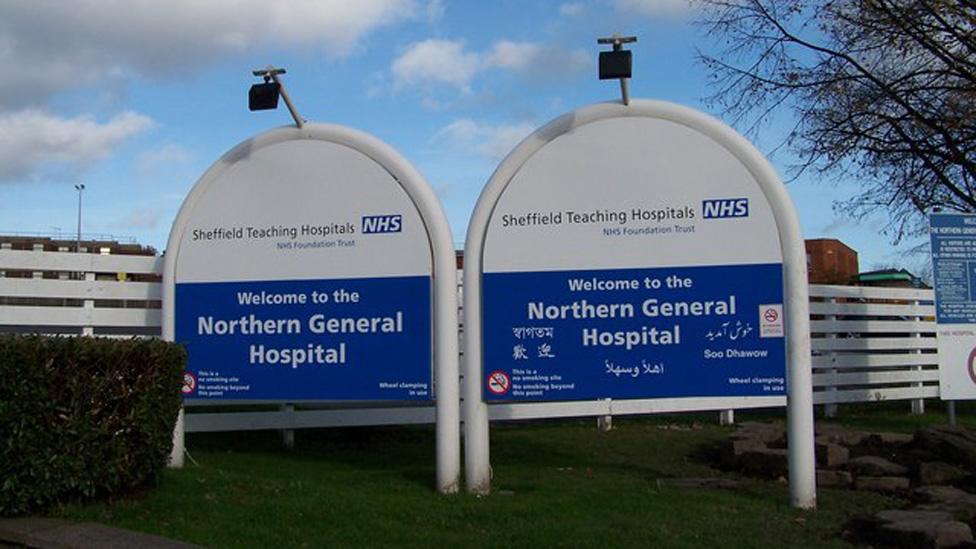South Yorkshire coroner's fears over ambulance 999 response times
- Published

Coroner Tanyka Rawden said the ambulance service should have given Roy Middleton's 999 call higher priority
A coroner has raised concerns over ambulance response times following the death of a man who waited more than six hours before being taken to hospital.
Roy Middleton, 85, died in February after falling and cutting his head.
Coroner Tanyka Rawden said the fact Mr Middleton, from Sheffield, was taking blood-thinners should have meant his 999 call was given a higher priority.
Without changes to ambulance protocols there was "a risk future deaths will occur", she said.
In her report, Mrs Rawden, a coroner for South Yorkshire, found that when Mr Middleton arrived at the Northern General Hospital in Sheffield he was "not fit for medical intervention" and died later from bleeding on the brain.
Mrs Rawden said his 999 call was allocated what was known as a Category Three response time, but "this assessment was not performed correctly and the call should have been changed to Category Two".
That would have resulted in a quicker ambulance response time, she said.
Category Three calls are those defined by the NHS, external as "urgent" and should see an ambulance response within two hours, while Category Two calls are those defined as "emergencies" and should be responded to in an average of 18 minutes.
Mrs Rawden added: "Had he presented at hospital sooner, it is possible he could have been treated - but it cannot be said whether he would have survived."

Roy Middleton died after waiting six hours to be taken to the Northern General Hospital in Sheffield
The coroner said her investigation found the system used by Yorkshire Ambulance Service to assess the seriousness of injuries relied on an algorithm developed by the US-based International Academies of Emergency Dispatch (IAED).
The IAED described itself on its website as "the standard-setting organisation for emergency dispatch and response services worldwide".
The inquest into Mr Middleton's death heard that the IAED system's algorithm did not take into account whether a patient was on blood-thinning medication when considering the category of emergency response required.
The coroner said: "I am concerned that if the algorithm isn't changed to take into account the affect of anti-coagulant medication on a head injury, deaths will occur in the future."
Mrs Rawden said she was aware Yorkshire Ambulance Service had "raised the same concern with the International Academies of Emergency Dispatch as a result of this incident".
The coroner said she had sent her report to the IAED as well as to Health Secretary Steve Barclay.
The BBC has contacted Yorkshire Ambulance Service and the IAED for a response.

Follow BBC Yorkshire on Facebook, external, Twitter, external and Instagram, external. Send your story ideas to yorkslincs.news@bbc.co.uk, external.